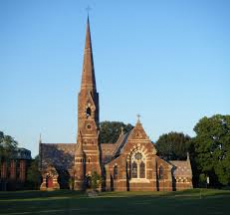
Email: nadege.preston@hotmail.com
Total Article : 82
About Me:Hi I’m Nadege and I study French at the University of Leeds, and I have just completed my third year abroad in Montpellier studying literature and enjoying the sunshine! I love art; painting and being creative, as well as photography and baking. Travelling is my favourite hobby at the moment; experiencing the French language and culture. I hope you enjoy reading some of my articles!

Steve Bruce and Will Herberg both argue that secularisation has taken place in Britain because Authentic religion is being lost. Authentic religion includes serious commitment to a religion, the use of a doctrine and the refusal to compromise religious beliefs and values with those of wider society. Bruce states that it is being lost because the church is compromising itself to the wider society and ‘watering down’ its beliefs. Examples of this include questioning the virgin birth, accepting divorce and questioning other elements of the religion. However, Herberg argues that Authentic religion is being lost due to the fact that religious thinking is being dominated by the secular world and the doctrine/theology of religion is not having a great influence over people. He states that less people believe in spirituality and he agrees with Bruce by stating that religion is compromising itself to accommodate wider society.
Lyon supports this view that secularisation has caused religion to change to accommodate wider society. He uses a postmodern idea of Disneyfication. This is a process that trivialises religion and makes it appear less serious. Lyon argues that religion is trying to market itself to appeal to the masses and attempts to do this through the media. He argues we now have a ‘spiritual market place’ as religion is seen as less important and has changed and is used through more important elements in people’s lives such as the media. This highlights the fact that society has become more secular, as people aren’t interested in traditional religion. Religion has therefore been forced to change and suit people’s changing norms and values.
There are also various indicators of secularisation. These include the fact that there are fewer baptisms and religious marriages and the church attendance is in decline. Religion is becoming marginalised, causing the Disneyfication of religion and a decline in religious metanarratives in postmodern society. Religions have become more secularised themselves, as they are questioning their beliefs and various churches are now closing. Sunday schools are on the verge of extinction and religion is being withdrawn from the state as it now has little influence over social policies. Same-sex marriages are an example of how laws do not consider religion nowadays. All these aspects show how Britain is becoming more secular in the postmodern era.
Lastly, the development of New Age Movements and New Religious Movements show the fragmentation of religions. It can be argued that the growth of NAMs and NRMs show how people today are finding belief in things other than a God/religious thinking. They use self-spirituality as a means of finding own fulfilment and people can pick ‘n’ mix with whatever beliefs and practices meet their needs. More people are choosing this option over believing in religion because you can choose what you want to believe in, such as UFOs and Herbalism. Bruce supports this by stating that the growths of new religious movements are a consequence of people’s loss of faith in traditional religion. Therefore Britain is becoming more secular and so NRMs are growing.
IMAGE URL
http://upload.wikimedia.org/wikipedia/commons/8/8b/Church_of_the_Good_Shepherd_Hartford_CT.JPG

0 Comment:
Be the first one to comment on this article.